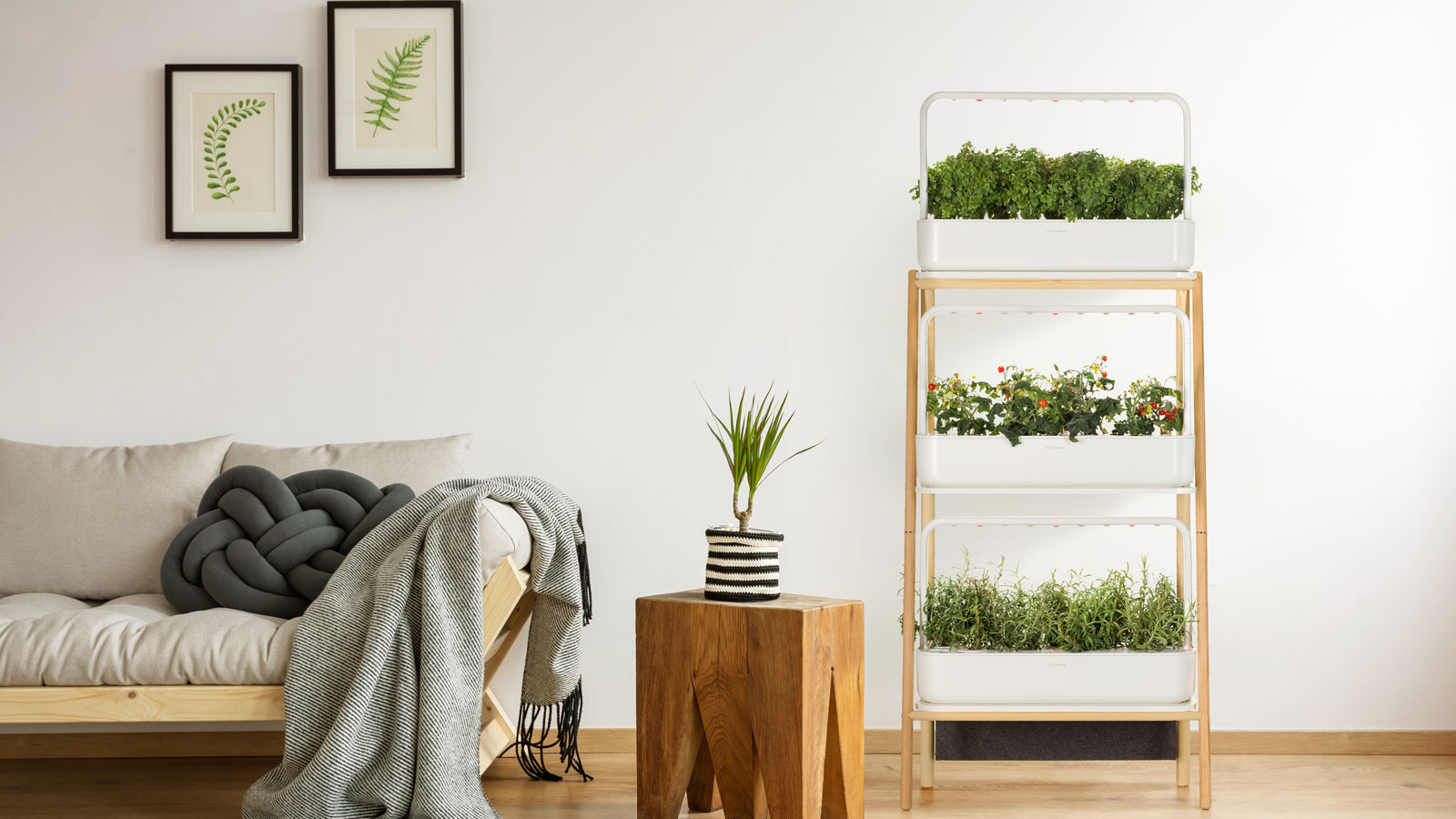
When it comes to apartment gardening, it's surprising how much fresh organic produce your can grow even in a small space. As long as you have a couple of decent sized window sills, either inside or out (preferably both), you can grow a regular supply of small space crops like fresh herbs, salad greens and chilli peppers in pots, jars, a small modular smart garden, or a stack and grow kit.
If you also have access to a rooftop, balcony or terrace you can add fruit and vegetables that require a little more growing space to the mix such as tomatoes, strawberries and even dwarf lemon trees. Meanwhile, indoor gardens can grow vertically, allowing you to take your efforts to the next level and produce nutrient dense produce that gives your healthy lifestyle aims a boost.
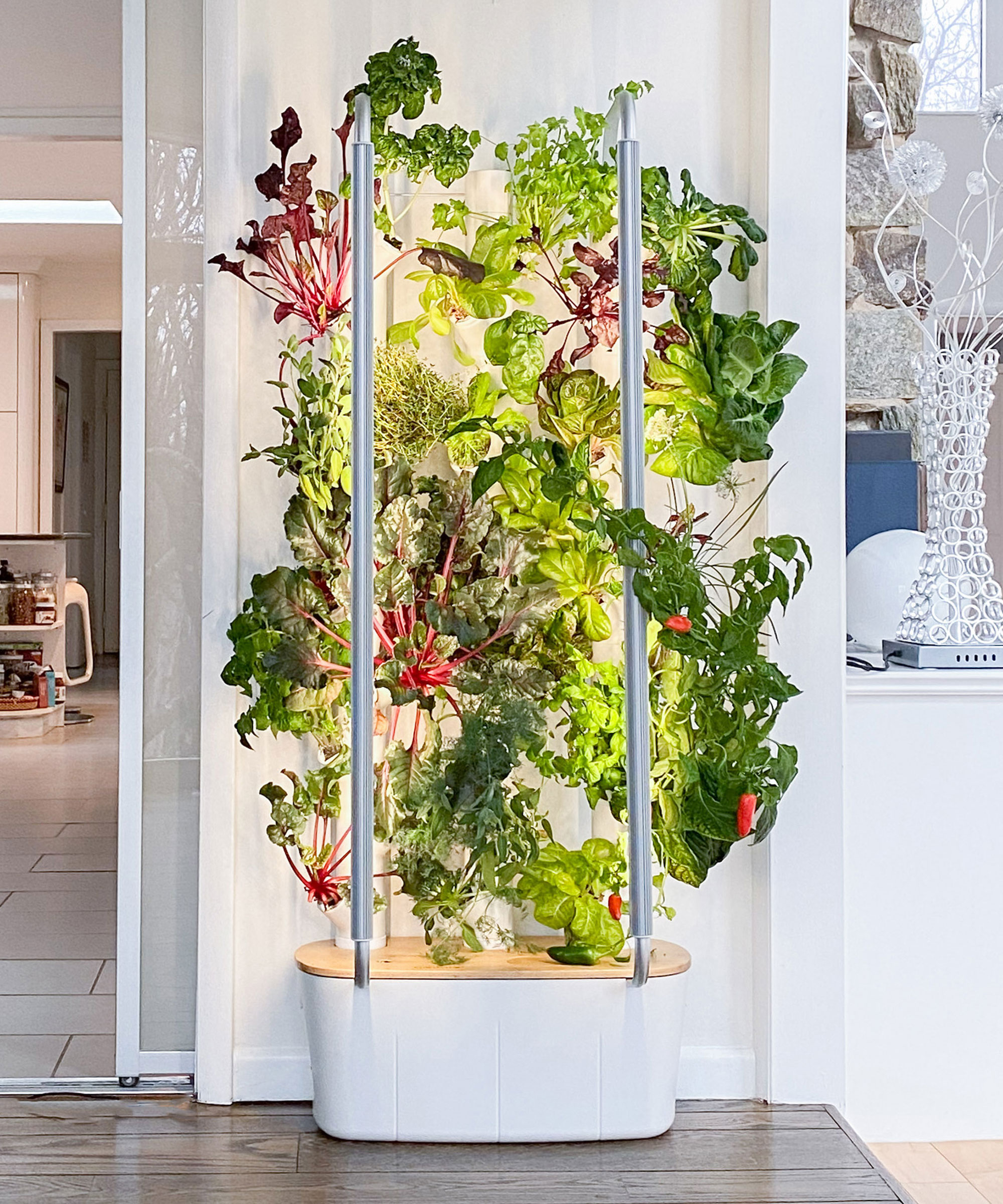
8 ways to get started with apartment gardening
Dive into apartment gardening for beginners with our easy expert guide to show you the way and you'll soon be harvesting your own fresh produce for a much healthier lifestyle.
'There are a wide variety of herbs, vegetables, and fruit that can be grown in containers indoors from spring right through until fall,' says Kelly Martin, founder of Urban Garden Gal. 'All you need to get started is some suitably sized containers, good quality potting soil, and a brightly lit window or spot on the balcony.'
Inspired to try and indoor vegetable garden, or flowers? Or both? Here are the 8 key things you need to know to get started on successful apartment gardening for beginners.
1. Work out how to use the space you have
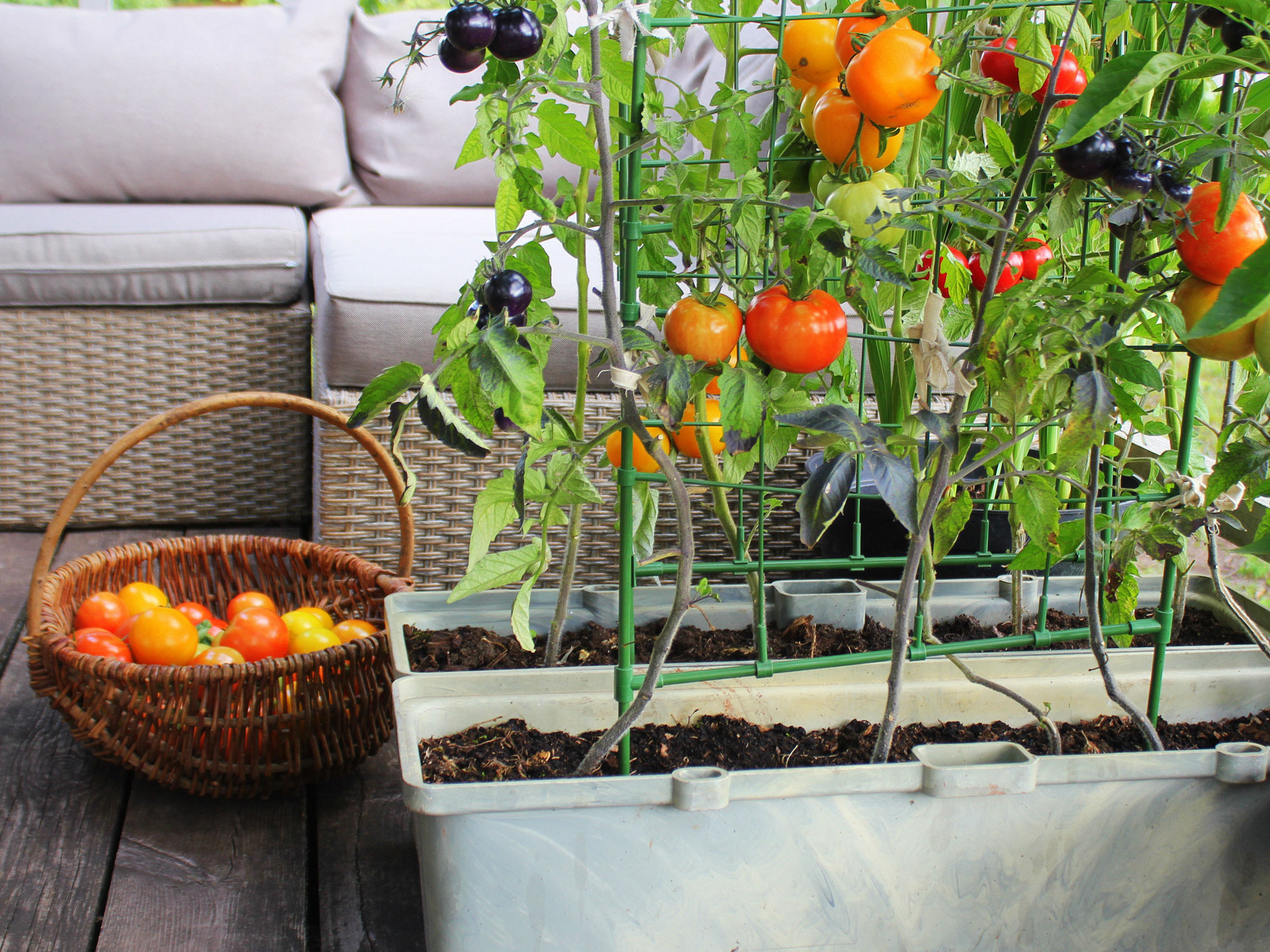
Whether you're wondering how to turn your windowsill into an indoor garden, squeezing a smart garden unit on to your kitchen countertop or considering a vertical planter or two on a balcony, choosing the right location is one of the most crucial aspects of apartment gardening. If space is tight you want to be sure that your planters won't be in the way.
'Find a place in your apartment with windows facing south or west as this will offer the most natural light,' says Aaditya Bhatta, founder of Plantscraze. 'Consider purchasing a grow light to supplement your windows if you're not getting enough natural light from them.' This grow light is highly recommended, and very affordable.
If you're gardening on a balcony factor in how sheltered it is and whether you will have to provide additional screening if your plants could be exposed, as well as taking into consideration how much soil or compost will weigh once you have decided what you're growing. You will need to know how much weight your balcony can support too. Remember, wet compost can be a weighty business.
2. Find the right containers or growing systems
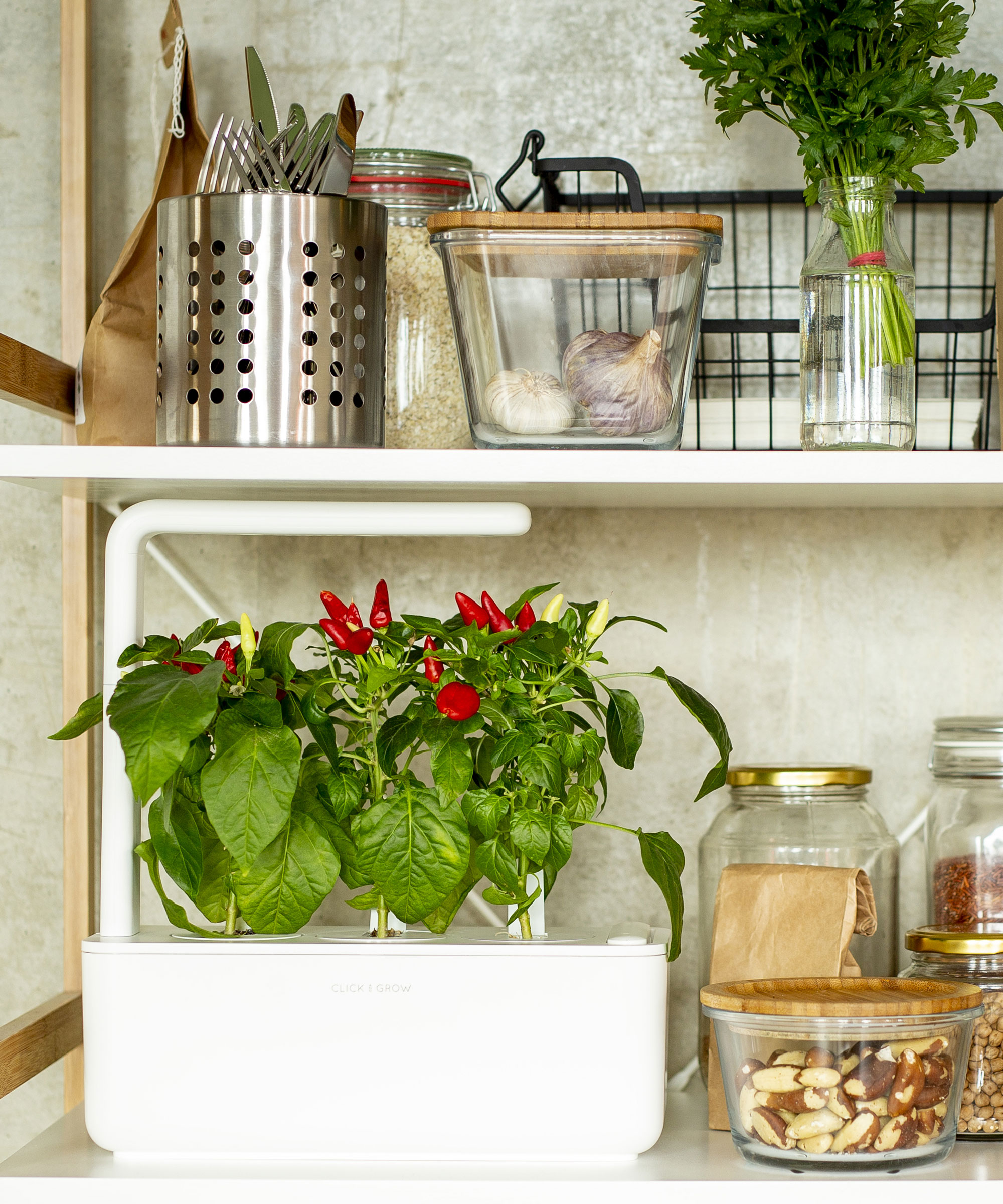
The key to successful apartment gardening is finding the right container or growing system for the plants you intend to cultivate. Perhaps you're considering a stack and grow kit like this stackable kit from Amazon for your balcony or a smart garden for indoors like this Click and Grow unit , also from Amazon. Either way, it's a good idea to make sure your container of choice slots neatly into the available space, and one of the easy ways to start hydroponic gardening.
'Depending on the size of your apartment or balcony, you can use anything from small pots to large planters,' says Zahid Adnan of The Plant Bible. 'Be sure to choose containers that have drainage holes, so your plants don't become waterlogged. You can also use hanging baskets, window boxes, and vertical gardens to maximize your growing space.'
3. Decide what you want to grow
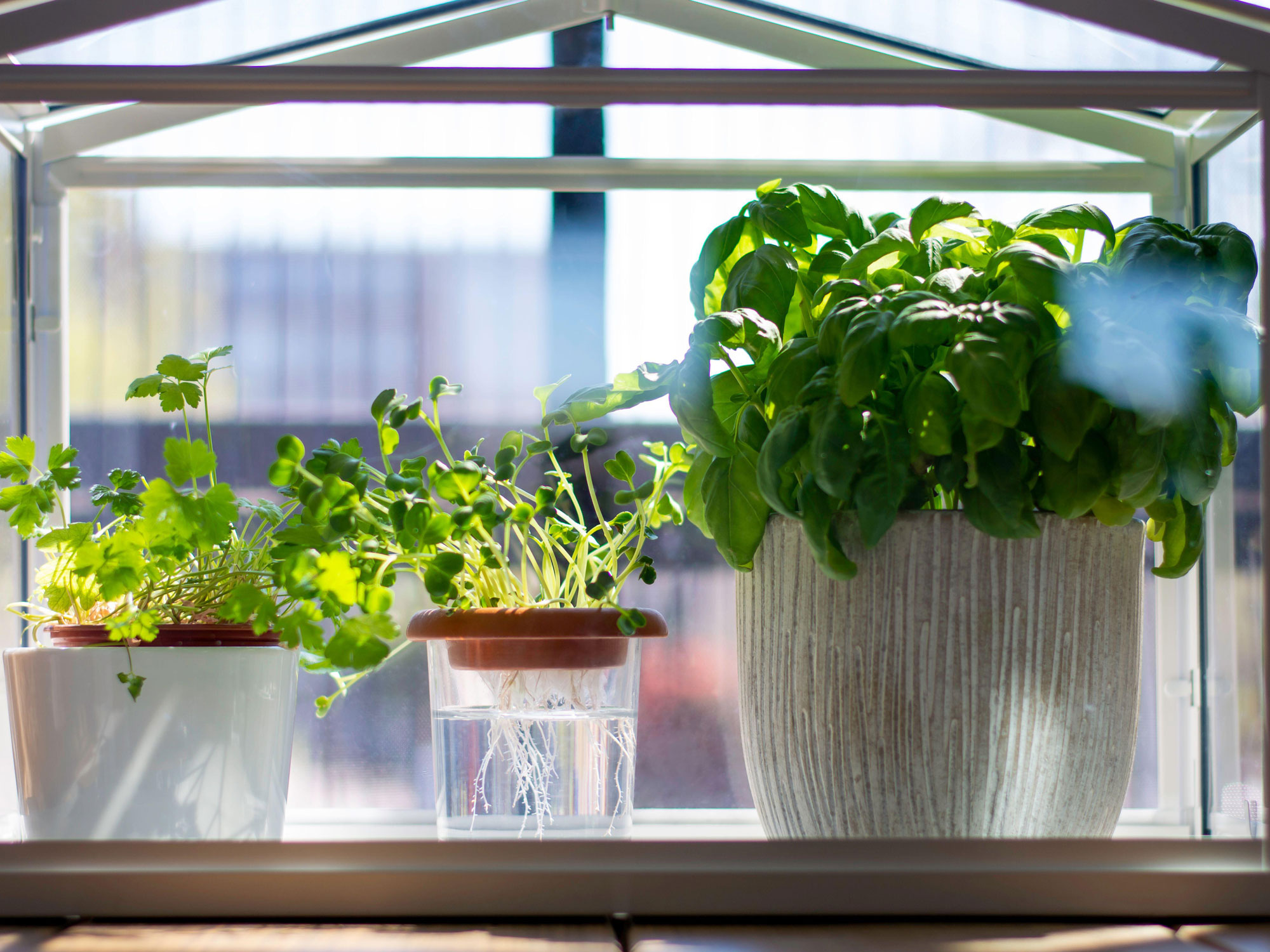
There are some vegetables you can grow indoors all year, and they're a great way to bring fresh, nutritious produce to your table. 'Knowing where your food comes from is just one benefit of home vegetable gardening,' says Dan Stuppiello, division merchandise manager at The Home Depot. 'You’ll also save money by buying less from the grocery store.'
Microgreens are one of the fastest growing indoor edible plants and they can be harvested less than a week after planting. 'They can be grown in small trays or containers on a windowsill and they're ideal for adding to salads and sandwiches,' says Kelly Martin. 'Popular microgreens include radish, kale and broccoli.'
'Another easy food to grow in an apartment is fungi,' says Nikhil Arora, co-founder of Back to the Roots. 'Organic mushrooms are really easy to grow indoors. You don't need much natural light at all, and you can go from start to harvest in just 10 days.'
4. Utilize every space including windowsills
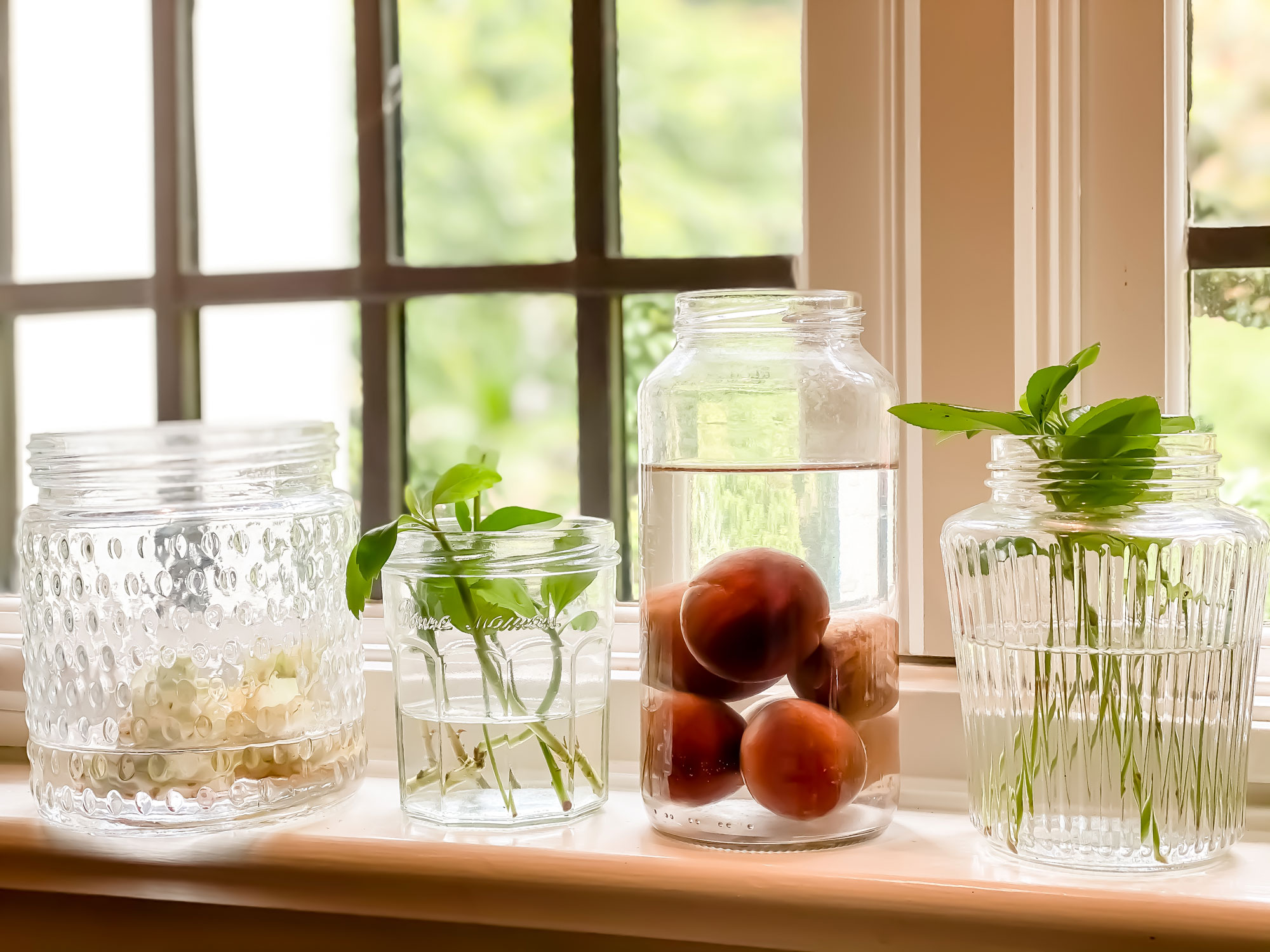
Windowsills are the perfect spot for growing vegetables as they usually receive lots of sunlight. 'If you're looking for ideas for apartment gardening for beginners, I would start growing plants with a short harvesting period, like leafy greens and herbs, because they're so easy to take care of,' recommends Plantin in-house gardening expert Melvin Cubian.
'If you're a bit of a risk taker, fruiting veggies like tomatoes, chili pepper, eggplants, or seasonal fruits like strawberries are excellent choices. Just don't forget to enrich the soil with organic compost or fertilizers with high phosphorus and potassium when plants begin to flower for better fruiting.'
When it comes to what herbs grow best in the kitchen, there are plenty of options. 'Herbs are great for windowsills as they thrive with good natural light and warm environments and especially if you have kitchen windowsills, it's so fun to be able to just harvest and garnish right there,' says Nikhil Arora.
'I’ve successfully grown cherry and grape tomato varieties indoors in front of a south-facing window and underneath grow lights,' adds Kelly Martin.
5. Think about grow lights
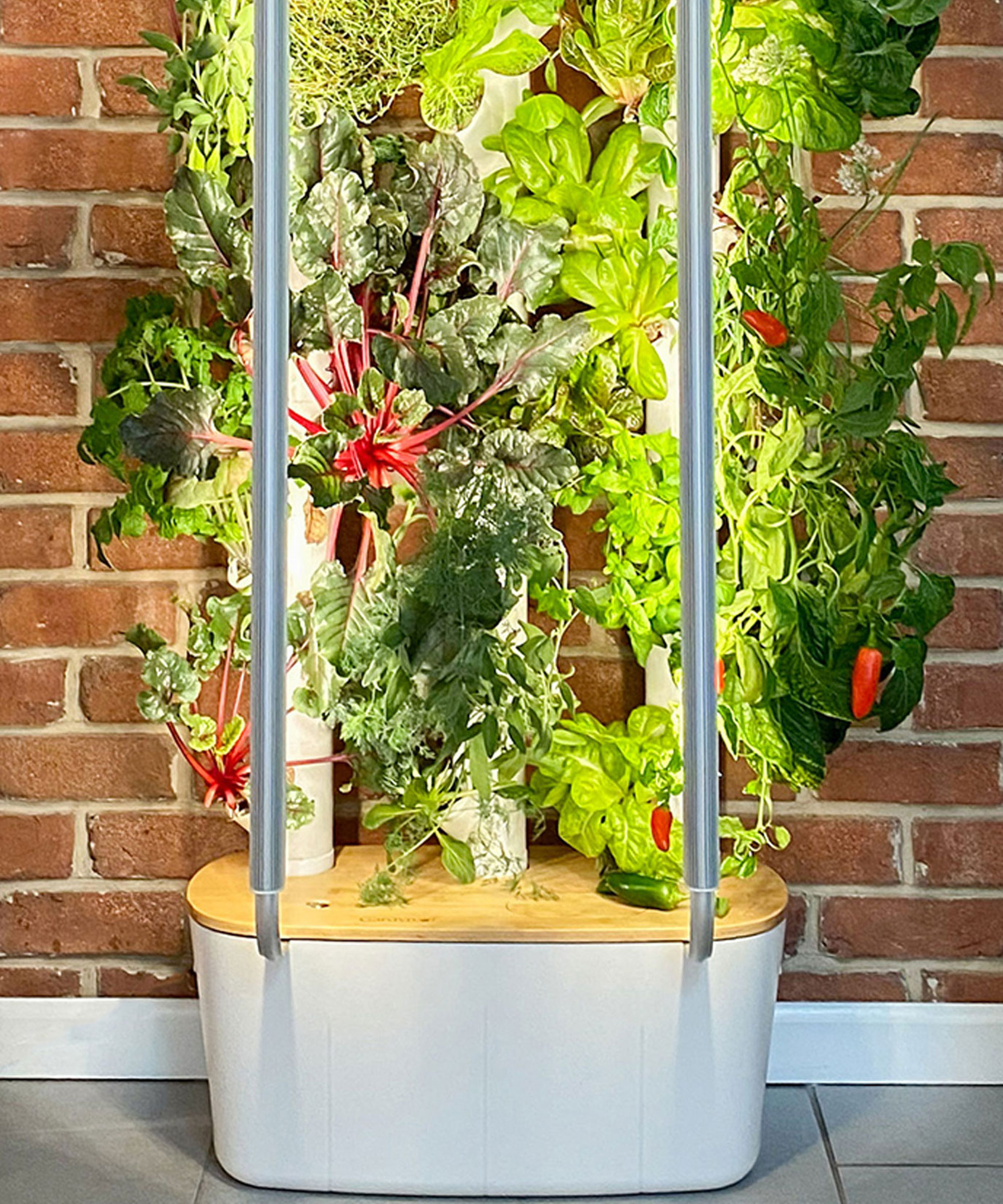
You might live in an apartment that doesn't get much sunlight, or has only a few windows. Or perhaps you want to focus your apartment gardening in an area that doesn't get a lot of natural light as it's the best fit (or only available space) for your interior aesthetic. If any of these apply to you this can be an issue as your plants won't get enough light to live their best life.
This is where indoor grow lights come in, as they can be used to complement natural light if necessary. Use them to simulate daylight and boost plant photosynthesis. The latest indoor models like this grow light from Amazon work with multi-layered planting systems like grow towers and have a timer that can be pre-set to accommodate the lighting needs of your plant, which is great for people who aren't home all day or if you're heading off on a vacay.
6. Grow vegetables from scraps
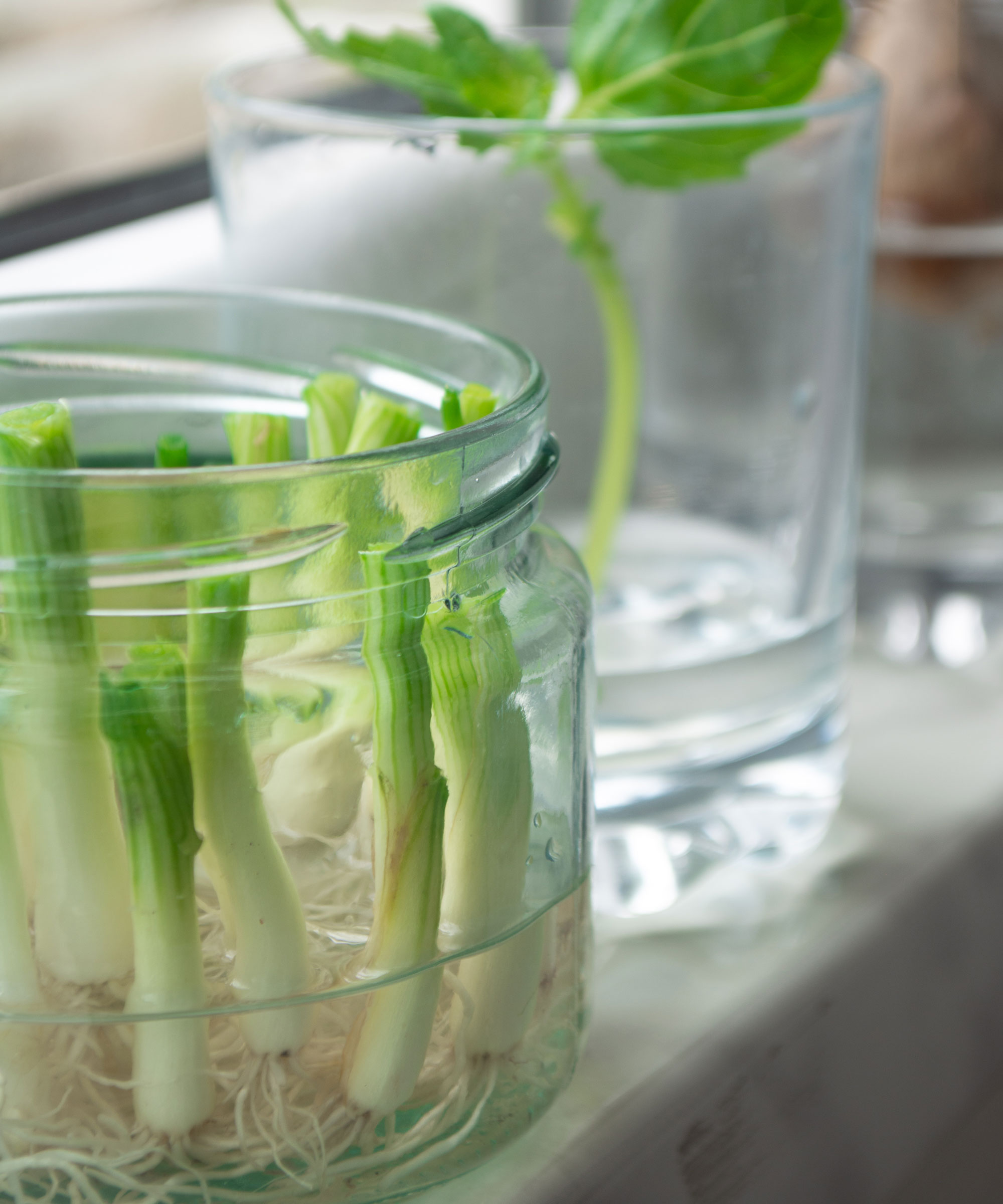
You can reduce food waste by learning how to regrow vegetables from scraps. The parts of vegetables you usually toss, like carrot tops, lettuce bottoms or scallion scraps, can be turned into new plants and used for cooking.
'Here's my pick of the best vegetables that can be grown from food scraps or leftovers,' says horticulturalist Jeff Collard, who works with True Leaf Market. 'Green onions, celery, romaine lettuce, garlic, ginger, potato, sweet potato, carrots, basil, cilantro and other herbs, and mushrooms.'
Scallions are excellent vegetable scraps to start with. 'Save the bottom half or quarter of the scallions (with roots) and plant it in a well-draining medium to ensure good foliage growth,' says Melvin Cubian.
'Most varieties of lettuce, bok choy and cabbage can be regrown from the root,' says Dan Stuppiello. 'Cut off the bottom section and place the flat end in one-half inch of water and set in a sunny window. After three to four days, roots and new shoots should emerge. Once this happens, transfer to all-purpose potting soil.'
7. Try growing in Mason jars
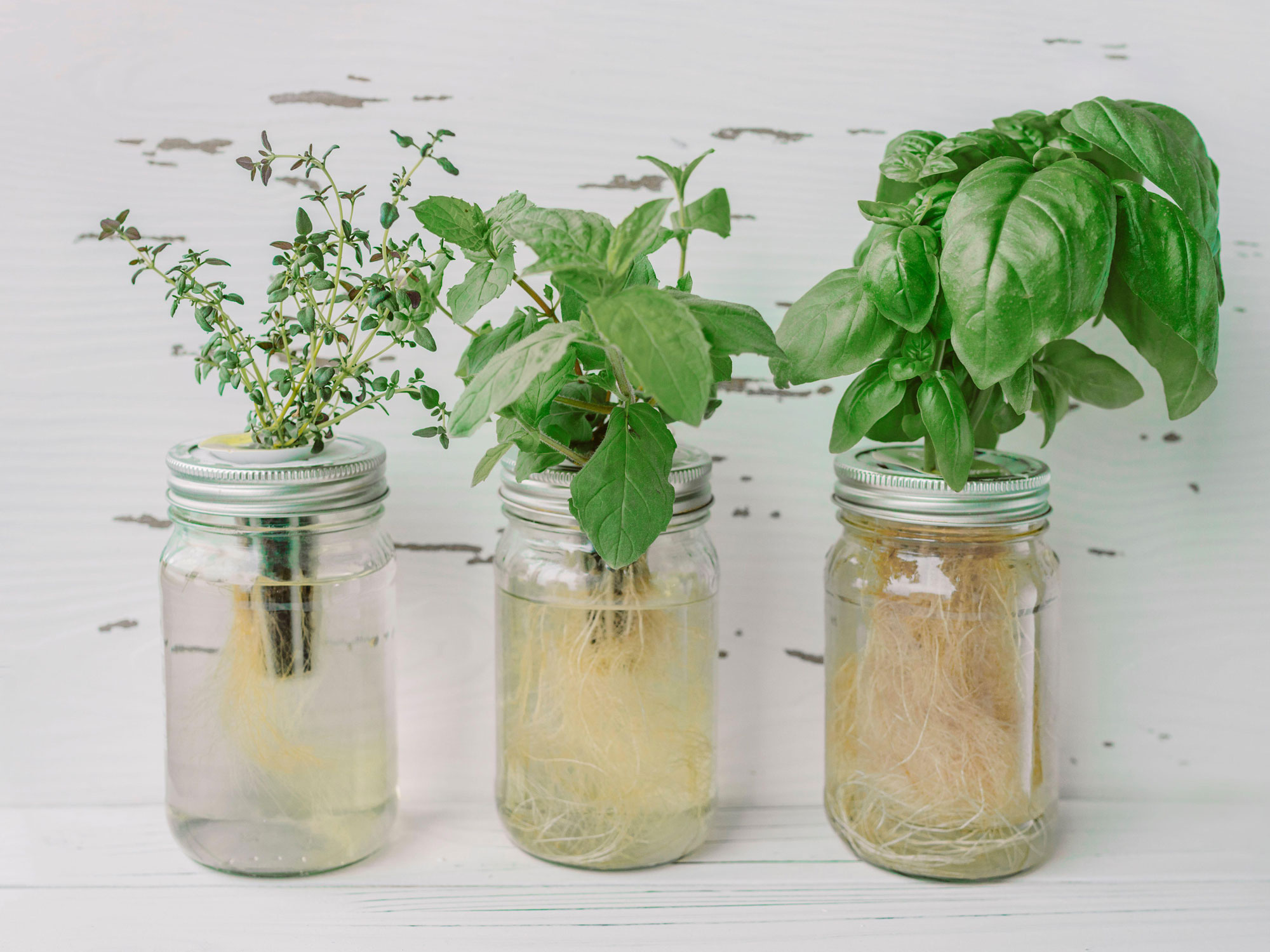
Add some green to your kitchen by growing an indoor herb garden in jars. 'Many herbs will grow indoors and are small enough to grow successfully in a jar if they have plenty of light and water,' says Dan Stuppiello. 'Herbs like light and require a minimum of four hours' sunshine a day. A bright, south-facing window is ideal.' Dan recommends trying to grow basil, parsley and mint in this way.
Micro-greens or sprouts are also perfect for growing in a Mason jar. 'I've recently grown alfalfa and mung bean sprouts in a jar,' says horticulturalist Annette Hird of Easy Urban Gardens. 'These are ideal for throwing into a salad or adding to a sandwich.'
These super quick crops are packed full of fresh flavor and crunch, as well as nutrients that give you a daily vitamin and mineral boost. The only equipment you need are clean jars, which take up hardly any space. There's not much involved when it comes to growing them either, just a simple rinsing process that's quick to do. These are also one of the few crops you can sow and harvest all year round.
8. Set up a hydroponic growing system
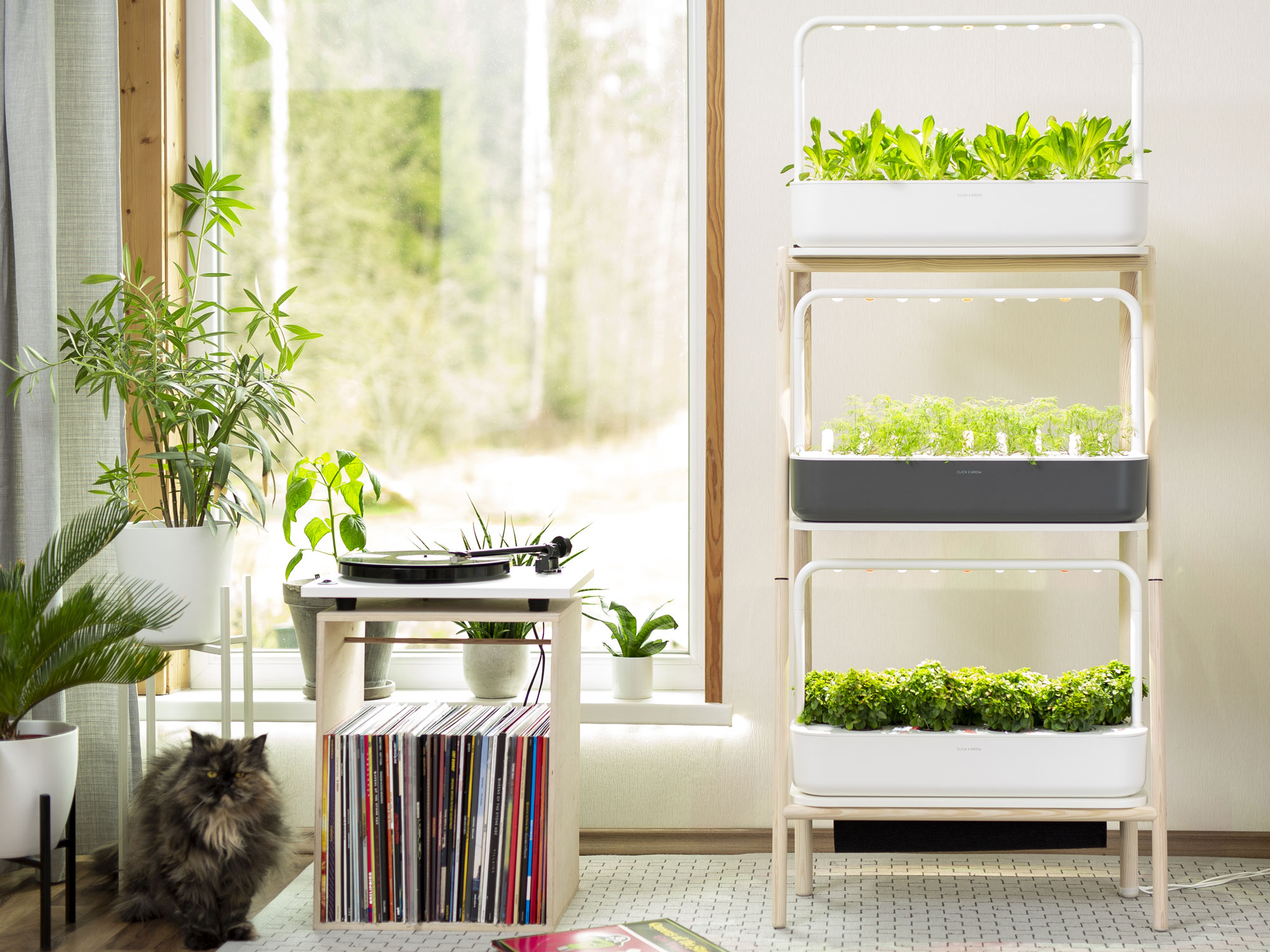
If you live in an apartment without any access to outside space you can still grow your own with the latest hydroponic gardening ideas, where you cultivate plants without soil. Instead your plants are fed with a water-based, nutrient-dense solution.
Smart units that sit on kitchen countertops or stylish grow towers with built-in LED grow lamps are easy to set up and maintain, plus they don't take up too much room. Alternatively you can make your own hydroponic growing system with just a few basic elements.
With hydroponics you can grow a year-round supply of fresh herbs, salad leaves, leafy greens, tomatoes and strawberries without carting heavy bags of compost through your apartment. It's so easy to do you'll wonder why it's taken you this long to jump on the trend.







